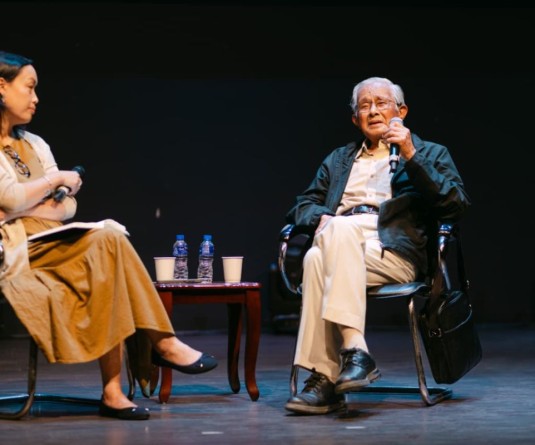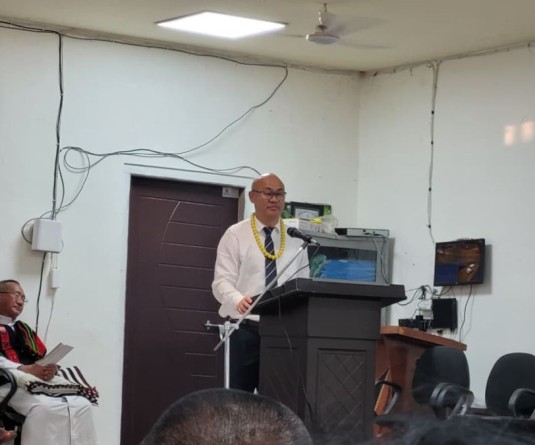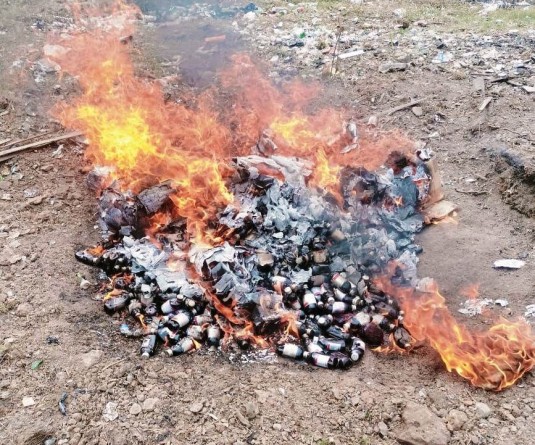
Rosemary has previously worked with the Danish Red Cross as a volunteer. She was also based in Srilanka for some time working with Malteser International to rehabilitate Tsunami victims. Rosemary has also worked with a number of NGOs, UN agencies and UNICEF. Her works have also brought in accolades. In 2008 she received the –Order of Malta worldwide Relief Medal for Tsunami 2004 rehabilitation work from Malester International, Germany. She was also awarded a post graduate studentship award by the Hongkong University of Science and Technology Division of Social Science, Hongkong, China. And in 1996 she was also the proud recipient of the Joan Levett Memorial Scholarship Award by World Vision International. Rosemary is married to a German who is an Associate Professor. They are currently based in Copenhagen, Denmark.
Explaining the concept to this reporter, Rosemary Kikon says that there are many kinds of TO but she has used a mode called ‘Forum Theatre’ to introduce the concept to the students of OTS. The interesting technique about this kind of theatre is that it is never a monologue. In fact its main aim is to create a dialogue between the audience and the actors. Even the idea for the play is a group process where the actors do not ‘play the script’. On the contrary the play is scripted by the actors themselves which in turn gives them a sense of ownership and control.
Twenty enthusiastic participants from the Seminary presented a play based on the life of an adivasi maid who comes to work in a typical Naga household and is mistreated. The concept is something which one witnesses everyday and is especially relevant to our society which cannot survive without extra help. The play was carried out in four stages (minus costumes/music) and as soon as the play ended the audience was invited to participate with the actors in a ‘re-scripting’ of the play.
The most powerful moment is when the audience is challenged to correct a social injustice. In this way the play then becomes a ‘lesson in action’, definitely a very powerful tool to bring about social awareness on various issues. This particular kind of theatre would be a welcome change as the technique is unique if not simple. As the play has been a group process there is no need to learn dialogues or memorize long scripts, it is an on spot reaction with minimal formalities.
Talking about her work Rosemary says that she had planned these workshops because she strongly feels that Nagas need a creative means to discuss the issues confronting us. As a social worker working in different parts of the world, Rosemary says of her experiences that a creative method like Theatre of the Oppressed can help people- both the performers and the spectators, to enter into a healthy dialogue to discuss about issues that we are indifferent to or are not aware of.
As of now Rosemary plans to make a trip to Clark Theological College in Mokokchung where she will be training students from there and members of the Association for Performing Arts and Theatricals (APAT) a theatre group based in Mokokchung town. The workshop will focus on introducing ‘Theatre of the Oppressed’ method to the students and also train them to use this concept as a tool in creating social awareness.
On an ending note Rosemary hopes and is confident that the participants of the workshop will multiply the ideas and use this tool in their work to bring the much needed change that every progressive society needs.






